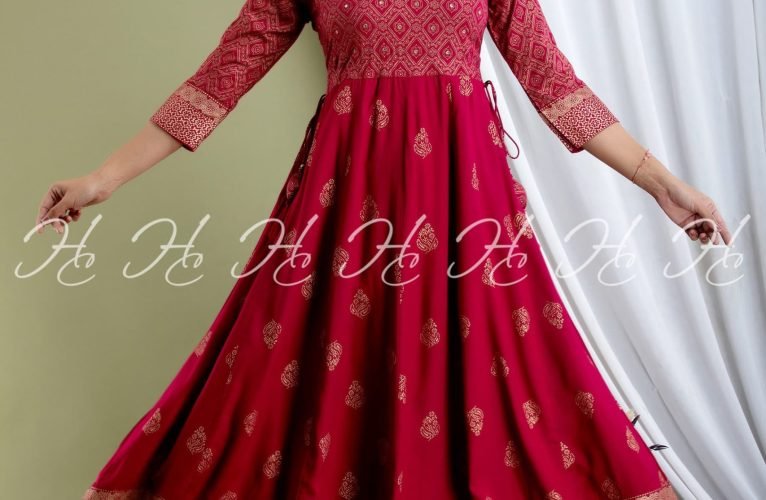Do kurti manufacturers offer eco-friendly or sustainable fabric options?

In today’s fashion industry, sustainability has become more than just a trend—it’s a responsibility. Consumers increasingly look for eco-friendly clothing options, and the kurti market is no exception. Many customers now ask, “Do kurti manufacturers offer eco-friendly or sustainable fabric options?” This question is particularly relevant for buyers who source in bulk from trusted suppliers. If you are searching for a kurti manufacturer in Jaipur, it’s important to understand how sustainability is shaping the production of these traditional yet contemporary garments.
The Rising Demand for Sustainable Kurtis
Sustainability in clothing involves using fabrics and production processes that reduce environmental impact. This includes organic materials, low-water usage fabrics, natural dyes, and energy-efficient manufacturing techniques. For the kurti segment, this shift is evident in the increasing availability of organic cotton, bamboo fabrics, and linen.
Buyers often prefer eco-conscious options because they not only reduce environmental footprints but also appeal to an audience that values ethical fashion. By working with a reliable kurti manufacturer in Jaipur, retailers and boutiques can ensure they source products that meet these expectations while maintaining quality and style.
Types of Eco-Friendly Fabrics Offered
Leading anarkali kurti manufacturers in Jaipur and other kurti suppliers are now incorporating sustainable fabrics into their collections. Some common options include:
- Organic Cotton: Unlike conventional cotton, organic cotton is grown without harmful pesticides and synthetic fertilizers. This reduces soil degradation and water pollution, making it a preferred choice for environmentally conscious buyers. Organic cotton kurtis are soft, breathable, and highly durable.
- Bamboo Fabric: Bamboo is a fast-growing plant that requires minimal water and no pesticides. Fabrics derived from bamboo are naturally antibacterial and hypoallergenic, offering both comfort and eco-friendliness.
- Linen: Linen comes from flax plants and is fully biodegradable. It requires less water than cotton and has a luxurious, breathable texture, making it ideal for summer kurtis.
- Recycled Fabrics: Some kurti manufacturers in Jaipur are experimenting with fabrics made from recycled materials, including repurposed cotton and polyester blends. These fabrics reduce textile waste and give a second life to discarded materials.
- Natural Dyes: Traditional dyeing techniques often involve toxic chemicals that pollute water bodies. Sustainable kurti manufacturers increasingly use natural dyes derived from plants, vegetables, and minerals. These dyes are safer for both the environment and the wearer’s skin.
How Manufacturers Ensure Sustainability
Eco-friendly fabric is only part of the sustainability story. Leading anarkali kurti manufacturer in jaipur also focus on minimizing waste and energy use in production. Many implement the following practices:
- Zero-Waste Cutting Techniques: By optimizing fabric cutting patterns, manufacturers reduce leftover scraps. Remaining scraps are often recycled into smaller products or used for patchwork designs.
- Water-Efficient Dyeing: Traditional dyeing processes consume vast amounts of water. Eco-conscious manufacturers adopt water-efficient techniques or closed-loop dyeing systems that recycle water and chemicals.
- Energy Conservation: Some factories incorporate solar panels or energy-efficient machinery to lower carbon footprints during production.
- Fair Labor Practices: Sustainability isn’t only about materials. Ethical production includes ensuring safe working conditions, fair wages, and skill development for artisans.
Benefits of Choosing Eco-Friendly Kurtis
Selecting sustainable kurtis from a trusted kurti manufacturer in Jaipur comes with multiple advantages:
- Market Differentiation: Eco-friendly products attract customers willing to pay a premium for ethical fashion. Retailers can position themselves as environmentally responsible brands.
- Long-Lasting Quality: Sustainable fabrics like organic cotton and linen tend to be durable, reducing the need for frequent replacements.
- Positive Brand Image: Supporting eco-conscious manufacturers helps businesses build a reputation as socially responsible and environmentally aware.
- Regulatory Compliance: As governments worldwide tighten regulations on chemical use and waste disposal, sourcing from eco-friendly manufacturers ensures compliance with environmental standards.
Challenges in Sustainable Kurti Production
Despite the growing demand, sourcing eco-friendly kurtis is not without challenges. Sustainable fabrics often cost more due to higher production standards. Moreover, some natural dyes may have limited colorfastness compared to synthetic dyes, requiring additional expertise during production. Buyers must carefully select manufacturers like reputed anarkali kurti manufacturers in Jaipur who maintain quality while offering sustainable options.
Choosing the Right Kurti Manufacturer in Jaipur
When looking for a kurti manufacturer in Jaipur, buyers should consider several factors:
- Fabric Certification: Ensure the manufacturer uses certified organic or sustainable fabrics, such as GOTS (Global Organic Textile Standard) certification.
- Production Transparency: Ask about the entire supply chain, from sourcing raw materials to finished products, to confirm eco-friendly practices.
- Custom Orders: Many manufacturers allow customization in fabrics and dyes, giving retailers the option to create a unique, eco-conscious line of kurtis.
- Experience and Reputation: Trusted manufacturers have a track record of delivering high-quality kurtis that meet sustainability standards without compromising on style.
Final Thoughts
The question, “Do kurti manufacturers offer eco-friendly or sustainable fabric options?” has a positive answer. The shift toward sustainable fashion is evident, especially among anarkali kurti manufacturers in Jaipur who are combining tradition with modern ethical practices. By partnering with these manufacturers, retailers can meet the rising demand for eco-friendly kurtis while promoting responsible fashion.







